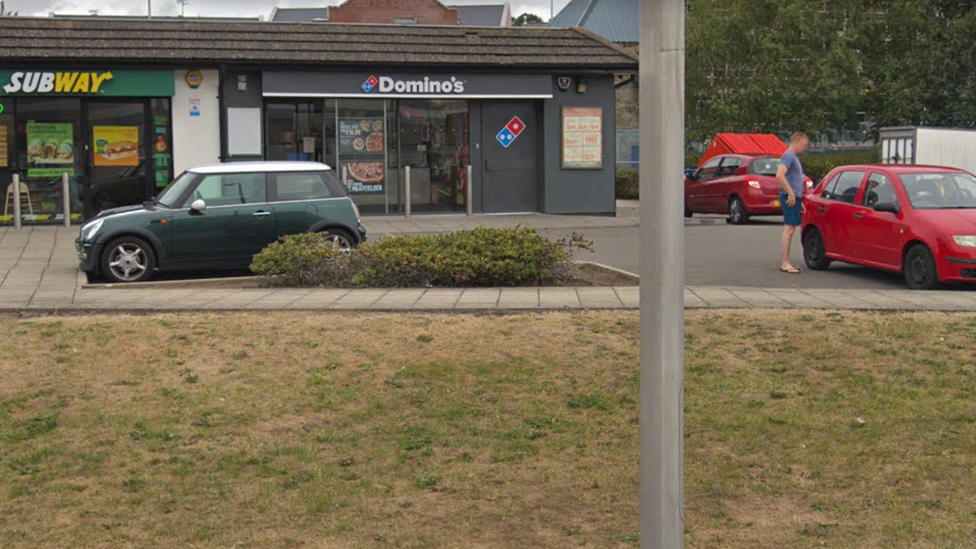Coronavirus: Welsh employers told to keep staff two metres apart
- Published

The first minister said the new rules were not an "absolute ban"
All employers in Wales are being told to do their best to keep workers two metres (6ft) apart or face a fine, as a new law comes into force.
Companies are being asked to take "reasonable measures" to keep staff healthy during the coronavirus crisis.
The Welsh Government believes the move is necessary after some employees complained they were not social distancing at work.
Police and councils will have the power to enforce the rules.
They will be able to issue fines of between £60 and £120.
But business organisation CBI Wales said the way the law had been introduced had caused companies "great difficulties".
First Minister Mark Drakeford said the new rules are not an "absolute ban" on people working closer together than two metres.
Instead, he urged employers to take "all reasonable measures" to ensure the health and safety of workers, adding that the law will largely be "self-policing".
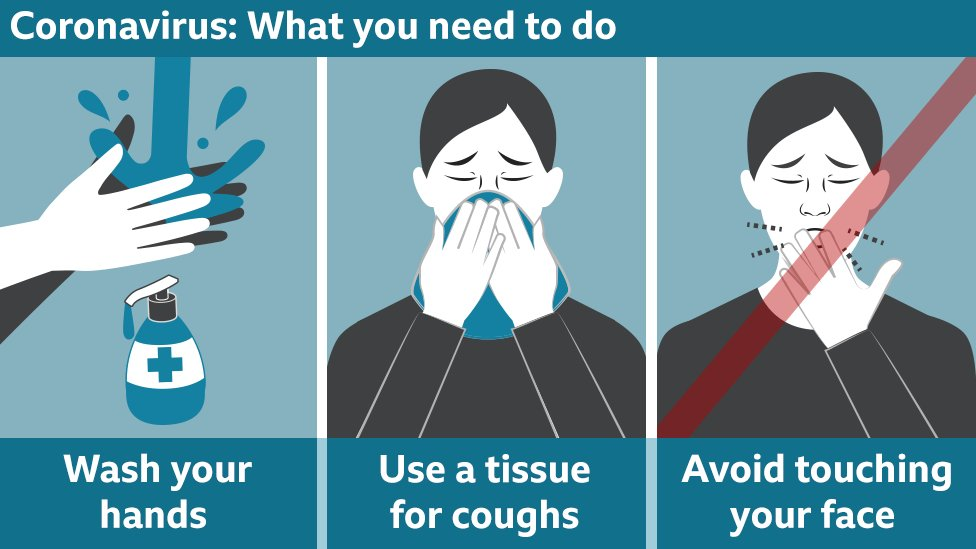
He said: "The eyes and ears of this rule will be the people who work in those workplaces reporting what they see to their trade union and to other authorities if they feel that these reasonable steps have not been taken."
Concerns have centred on a number of companies, including an outlet of pizza chain Domino's after it denied sacking employees who made complaints.
Angharad Maddocks claimed she was dismissed in the Llanelli branch after complaining social distancing and hygiene guidance was not followed.
"Even on the make-line there's no masks given," she said, describing 20 people in the store "crammed together".
How will the law work?
The rules require all workplaces, businesses and organisation to take "all reasonable measures" to ensure a distance of two metres is maintained between people on their premises, and those waiting to enter.
Police and councils will be able to enforce the moves, which came into force in the early hours of Tuesday morning.
Guidance for how the law will operate, external says there will be circumstances where it is not possible to take such measures.
"But employers will be expected to undertake an assessment before concluding there are no reasonable measures that they can take, and there are no blanket exemptions form this legislation," the guidance says.
Breaches can attract fines of £60 for a first offence, reducing to £30 if paid within 14 days, and £120 for second and further breaches.
The rules amend the original stay-at-home law that was introduced almost two weeks ago - and use the same enforcement powers and fines.
The law stated people should only go out for things such as shopping for basic necessities, exercising once a day and getting medical attention.
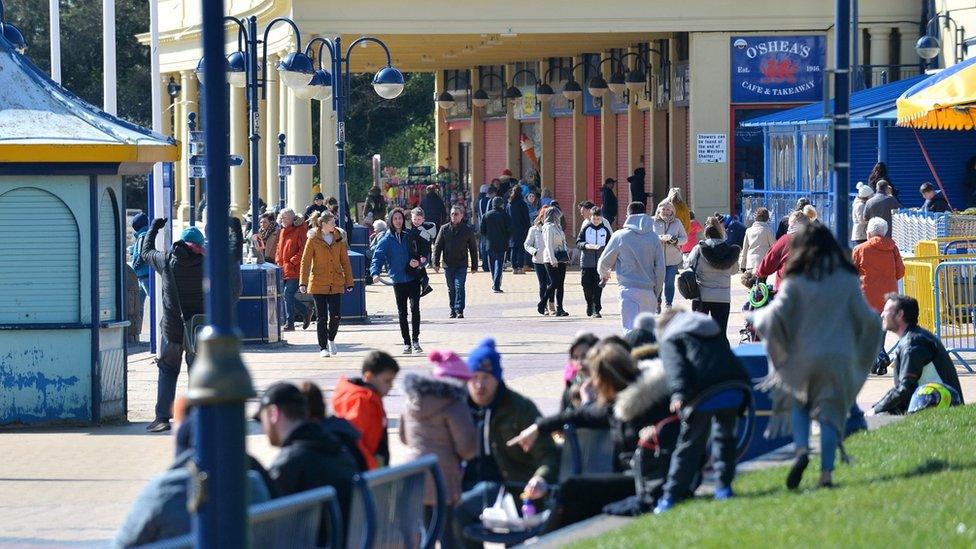
Rules have been brought in to cover all aspects of life, including people heading to seaside areas including Barry Island
CBI Wales director Ian Price said the organisation "welcomes the principles underpinning" the law.
"While we recognise the need for speed, the process for implementation - over a single weekend and with no clear guidance until the very last minute - has caused great difficulties for firms across Wales," he said.
Ifan Glyn, director of the Federation of Master Builders in Wales, said the new rules seemed to add to existing confusion over what was allowed.
"We've had members who have downed tools halfway through a construction project and clients putting pressure on them to come back," he said.
"When our members hold their ground, quite often clients will find other builders to come in and finish off the job because other builders are interpreting the regulations, the rules, in different ways."
£60 penalty 'not going to be enough'
The GMB Union raised concern at the level of fines.
Mike Payne, the GMB's regional organiser for Wales, told Gareth Lewis on BBC Radio Wales: "We're getting reports from members on a regular basis now that companies are remaining open, that they are quite clearly not classed as essential businesses, and yet employees are still being put at risk by that two metre barrier not being in place.
"So I don't think that £60 or £120 is going to be enough to put off those unscrupulous employers who have failed so far to implement that two metre rule."
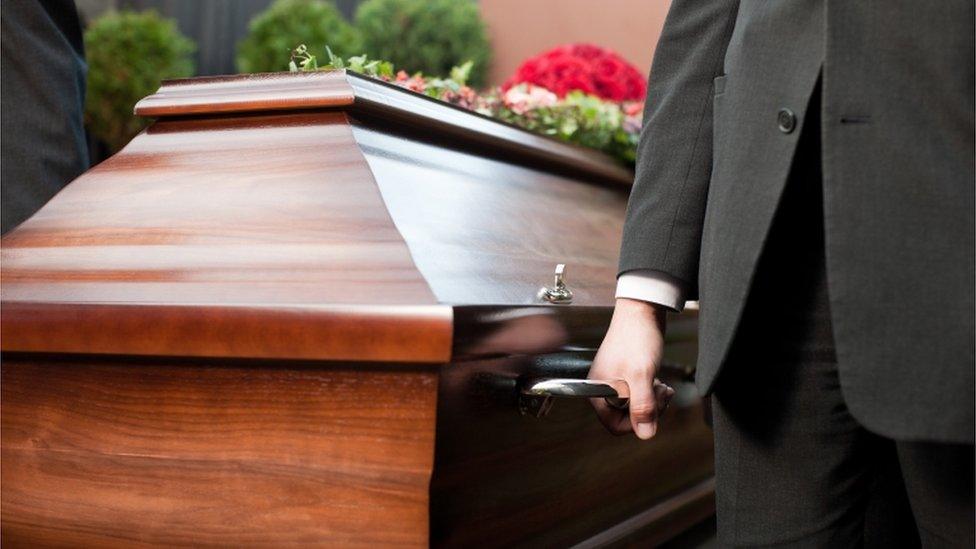
Rules on funerals have been relaxed to allow more people to pay their respects
Rules relaxed for funerals
The rules about who can attend a funeral are also being relaxed, but the requirement to keep people two metres apart will mean there will be a limit on the number of people who can attend.
They clarify that you are able to attend if you organised it, if you have been invited or if you are the carer of somebody attending.
But there will be a limit, depending on the number of people the venue can accommodate taking into account the two-metre rule.
The guidance also clarifies that cemeteries can remain open but social distancing must be taken into account.
Local Government Minister Julie James said: "The death of a family member or friend is a very distressing event which is why we have amended these regulations to enable people to attend funerals in certain circumstances."
She also suggested live streaming as a way of wider family and friends being part of a funeral.

A SIMPLE GUIDE: How do I protect myself?
AVOIDING CONTACT: The rules on self-isolation and exercise
LOOK-UP TOOL: Check cases in your area
MAPS AND CHARTS: Visual guide to the outbreak

- Published6 April 2020
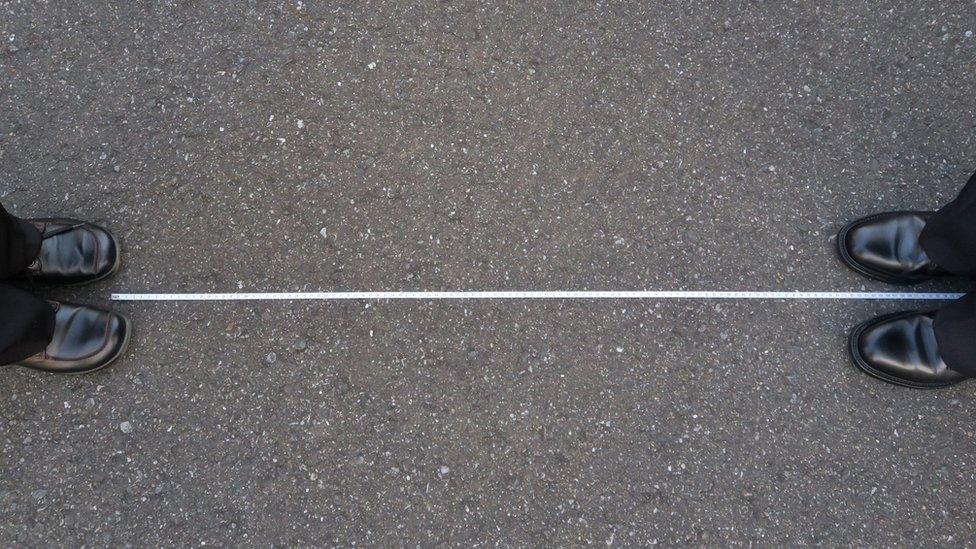
- Published6 April 2020

- Published6 April 2020
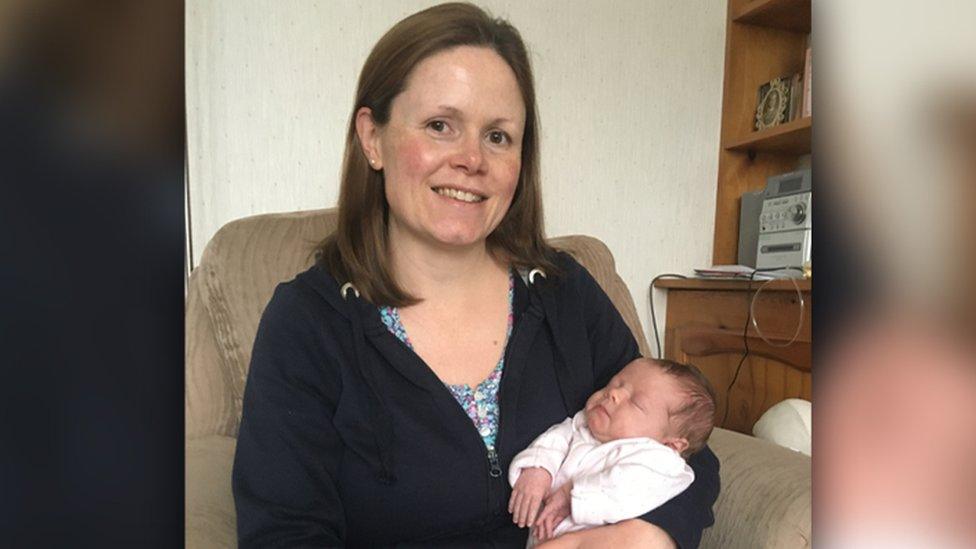
- Published4 April 2020
